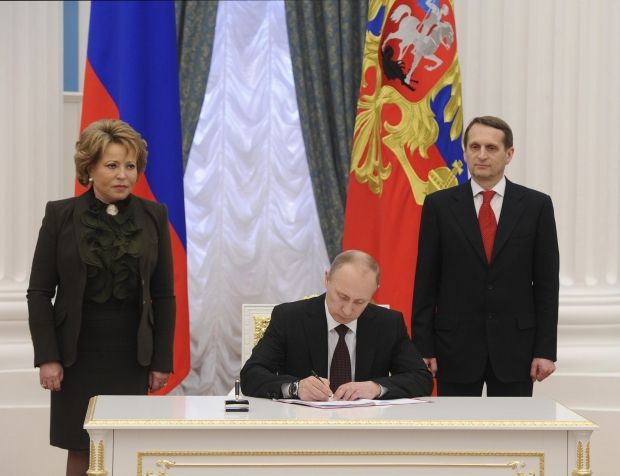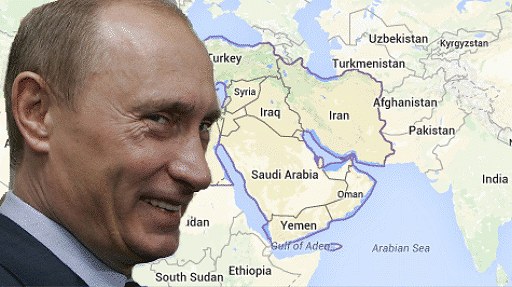 |
Pro-Russian militants in eastern Ukraine, Sept. 29.
Photo: European Pressphoto Agency |
Obama complains about Putin but does nothing. Here’s another way to squeeze him back home.
From Ukraine to Syria, the Obama administration has consistently misread Russian President Vladimir Putin’s objectives and the implications of cooperating with him. This has led to costly failures, but the administration is unlikely to change its approach. Congress need not sit idle too. By enacting new sanctions on Russia, U.S. lawmakers can send a strong signal to Moscow that its continued aggression against Ukraine and growing complicity in a genocidal war in Syria will come at a heavy price.
After Russia annexed Ukraine’s Crimea in 2014, the Obama administration and many U.S. allies imposed sanctions on Russian businesses and individuals. But those measures clearly haven’t been effective in discouraging Mr. Putin’s quest to exert Russian power and influence.
In Ukraine, despite the supposed cease-fire effected by the Minsk Accords negotiated by Germany, France, Ukraine and Russia, Moscow-supported aggression continues in the contested east. Russian troops remain in the region, as an extensive Sept. 14 report from the Atlantic Council documents, and Reuters has reported that new Russian military bases are being built.
 |
| CLICK CHART to ENLARGE |
In Syria, Mr. Putin, under the guise of fighting Islamic State, supports the Bashar Assad regime, which has used barrel bombs and chemical weapons in slaughtering tens of thousands of civilians, mostly Sunni Muslims—making Russia complicit in, and legally accountable for, these actions. The Obama administration over the past week has hinted that it might cooperate with Russia’s anti-ISIS campaign.
The danger of association with an aggressor like Mr. Putin, who is also working with Iraq and Iran, can be seen in Russian airstrikes over the past few days directed not at ISIS but at other opponents of the Assad regime. The Obama administration’s initial seeming openness to working with Mr. Putin in Syria has already compromised the White House’s ability to hold Moscow accountable on any front, including for its aggression in Ukraine.
Under the U.S. Constitution, the president has formidable authority for conducting foreign policy, but there are several steps—practical and symbolic—that Congress can take that would demonstrate a resolve toward Russia that hasn’t been forthcoming from the Obama administration.
Read the rest of the WSJ op-ed
HERE.
If you like what you see, please "Like" us on Facebook either
here or
here. Please follow us on Twitter
here.






No comments:
Post a Comment